It’s hard to pinpoint which part of a student’s educational journey is the most important. But the two years leading up to university are up there. The institution selected for post-16 study can have a huge impact on young people’s futures, and it’s not uncommon for students to select somewhere new for their last two years of secondary education. This might be to study a subject their current school doesn’t offer – or because they crave a change, like switching from single-sex to co-ed, or boarding to day.
And that’s why, despite there already being many excellent school-based sixth forms in London, independent colleges continue to thrive.
At a glance: London’s best independent sixth form colleges
What is an independent sixth form college?
An independent sixth form college, or private college, is a fee-paying, educational environment that mostly focuses on the final two years of pre-university education – although some do offer GCSEs and resits to a smaller cohort. Unlike school-based sixth forms, sixth form colleges are standalone institutions and often attract international students as well as young people living in the local area.
How do I apply to sixth form colleges?
Unlike school-based sixth forms, which tend to have strict admission deadlines, sixth form colleges often have rolling admissions – meaning students can apply at any point throughout the year. However, if there is a college you really want to get into, we advise applying early to secure a place.
As a first step, try to see the college in person. Most colleges hold open days throughout the year, but they can also arrange private visits for prospective students when required – particularly helpful for international students who often can’t make the open day dates.
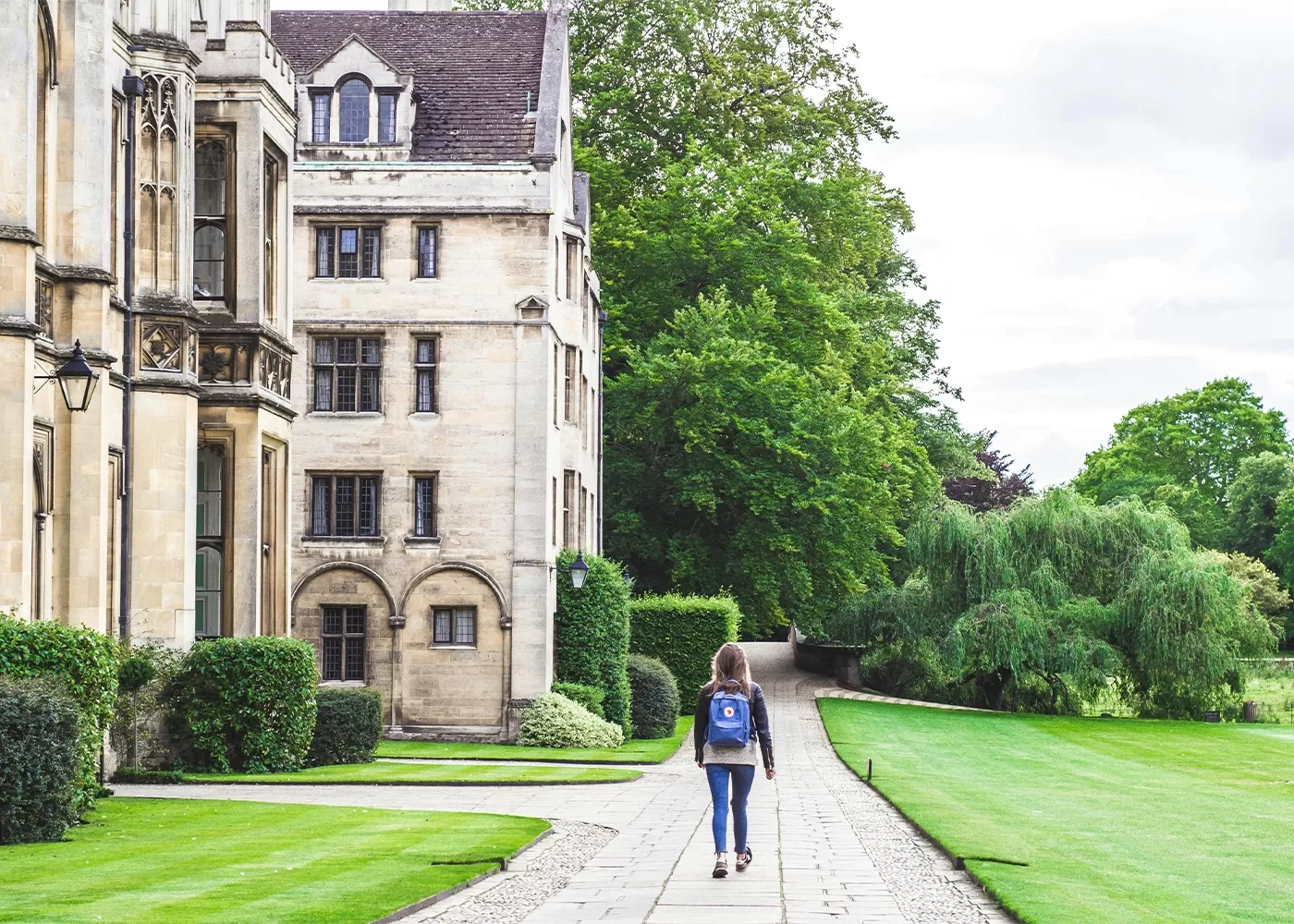
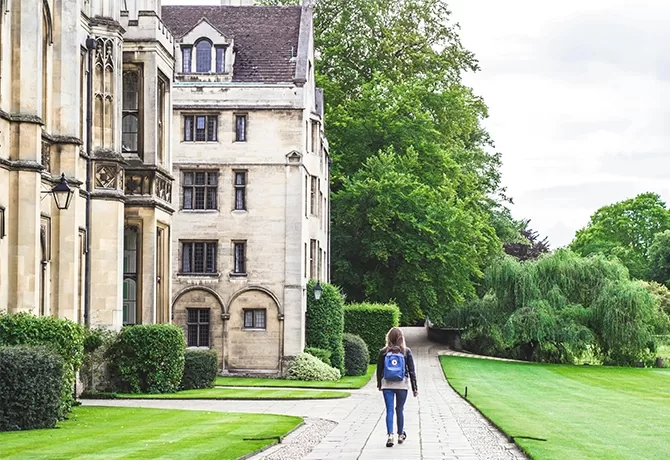
Next, you’ll likely meet with the college representative to discuss subject choices, future ambitions, accommodation if needed, and logistics, followed by an interview with the head of admissions. As these colleges tend to be less academically selective, you probably won’t need to take an entrance exam, but some may have minimum requirements for certain A-level subjects; for example, a student looking to take economics may need to get a particular grade in maths at GCSE or equivalent. Offers are then made on a rolling basis, with no set deadlines.
Quintessentially Education is on hand to help with sixth form applications for any of the outstanding colleges in this article – discover more on our website.
Pros and cons of sixth form colleges
Pros
- Colleges offer a university-like environment, promoting independent study and self-discipline.
- Flexible subject options enable students to tailor their studies to their strengths and interests.
- Students can re-sit GCSEs whilst taking their A-levels or equivalent qualifications. A-level resits for gap-year students are also possible at some sixth form colleges.
- Smaller class sizes can allow for more personalised attention from teachers, which can strengthen exam results and boost confidence.
- They have more flexible admission criteria, providing students with more chances to secure a place.
Cons
- Sixth form colleges typically offer fewer extracurricular activities compared to school-based sixth forms.
- A university-like environment is not for everyone and can be challenging for those more accustomed to a tightly structured environment.


London’s best sixth form colleges
Ashbourne College, Kensington
Established in 1981, Ashbourne’s welcoming, supportive environment is immediately evident from the slew of welcome events it hosts at the start of each academic year. This is when between 80 and 90 students, 50% of whom are international students, join the Lower Sixth, where they are educated in class sizes of no more than 10. Lower Sixth students are all assigned a personal tutor whom they meet with on a weekly basis, whilst Upper Sixth students have a UCAS tutor to help them with university applications and CV development.


Number of pupils: 280
2024 A-level results: 45% A*/A
Academic entry criteria: students typically require an average grade of 6 at GCSE or equivalent and are expected to be aiming for a B or above at A-level.
Admissions process: rolling admissions, with no set deadline for applications. Prospective students will submit a personal statement and may be required to take written tests in English, maths, or critical thinking, depending on their A-level choices. They will also be invited to the college to have an interview with the head teacher before offers are made.
ashbournecollege.co.uk
Mander Portman Woodward (MPW), South Kensington
With no uniform and a flexible schedule, MPW definitely has a relaxed, socially engaging atmosphere – but its academic discipline is razor sharp. As well as small class sizes of no more than nine students, attendees also receive personalised support from the Director of Studies, whom they will meet with every other week for course advice and UCAS assistance. The curriculum is also fairly flexible; they can study both A-levels and GCSEs here, and the college also offers specialised revision courses and November GCSE retakes for English and maths.
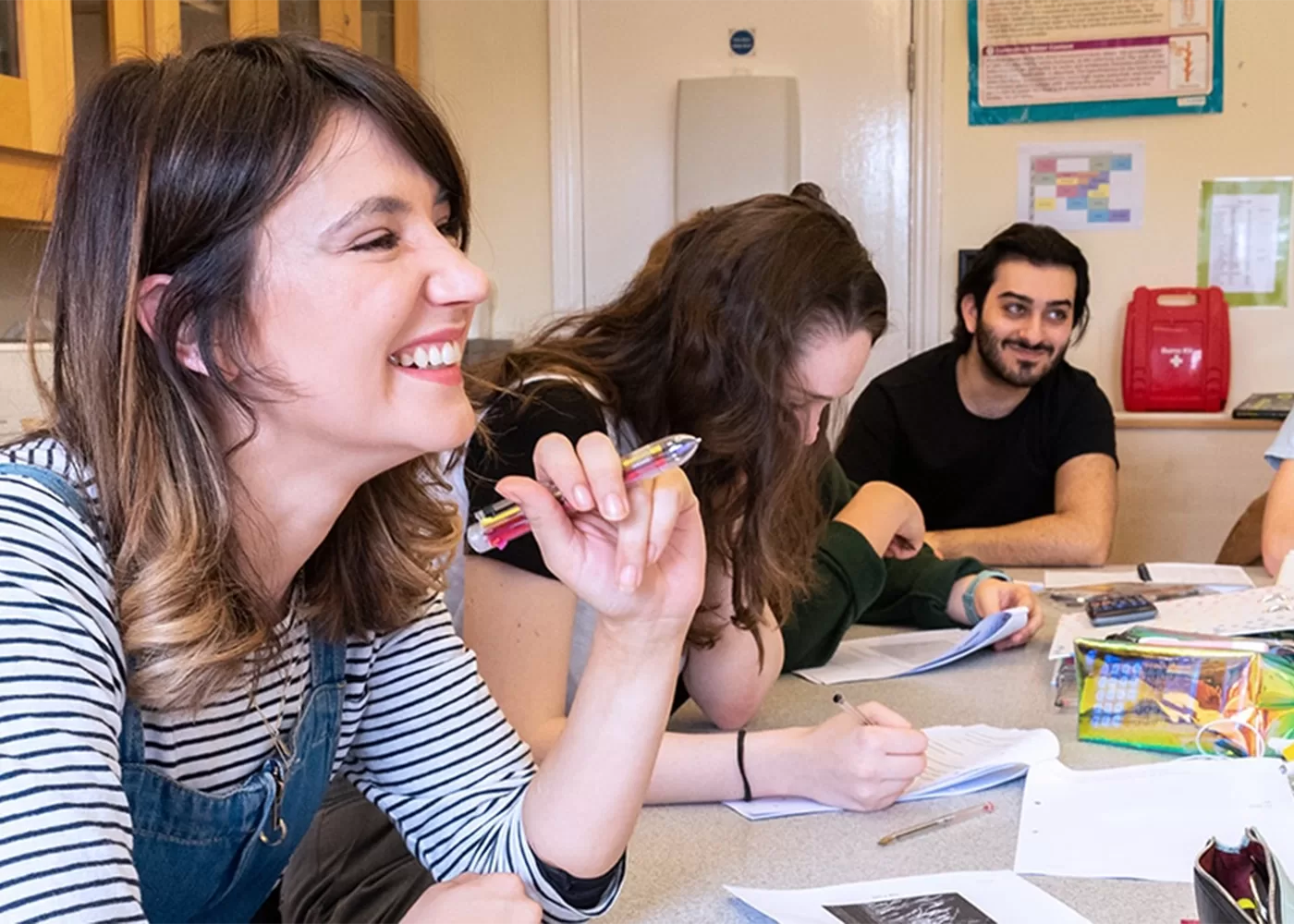
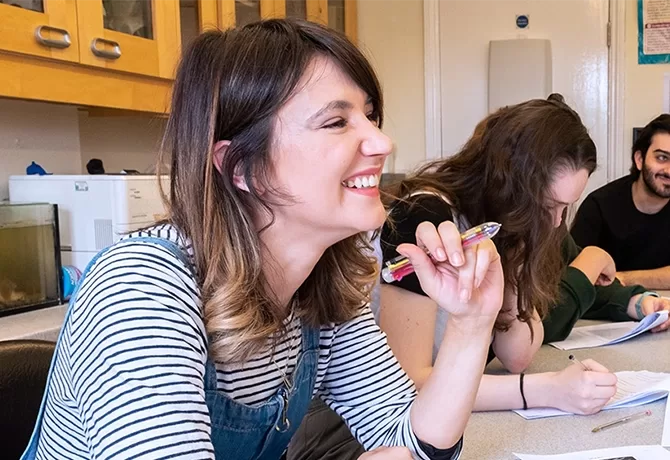
Number of pupils: 509
2024 A-level results: 38% A*/A
Academic entry criteria: none – this college is academically non-selective, and the main focus is on the interview.
Admissions process: rolling admissions, with no set deadline for applications. Prospective pupils are invited to the college for a visit, where they’ll meet with the head teacher for an interview and a discussion about their options and goals. International students may be asked to sit an assessment test, including English proficiency, and MPW also requests references from students’ current schools.
mpw.co.uk
Albemarle Independent College, Marble Arch
Excellence is a universal language at Albemarle, whose focus on promoting independence puts them in good stead for higher education. Each student has individual tutorials as well as small classes with 2–8 others, and they’re assigned a curriculum manager to help with study skills, subject choices, and career advice. Monthly mock exams help them to build confidence and track their progress, whilst weekly career and life skills sessions get them exploring future pathways and career options.


Number of pupils: 110–135
2024 A-level results: 58% A*/A (although this is an average over the last 10 years)
Academic entry criteria: ideally, six GCSEs at grade 6 or above.
Admissions process: rolling admissions, with no set deadline for applications. However, places are limited, and the college recommends applying before Easter to give yourself the best chance of securing a place. Prospective students are invited to visit the college and have an interview with one of the principals, where they’ll discussion their goals and options. Places are then offered accordingly, and students can decide which subjects they’d like to study on GCSE results day.
albemarle.org.uk
Brampton College, Hendon
Located in a purpose-built site and fitted with state-of-the-art facilities (including newly refurbished labs, an art studio, and computer labs), this is a modern college in the truest sense of the word. There’s no uniform and students and staff address each other by their first names, creating an informal, yet highly supportive atmosphere. Its extracurricular programme is also excellent, with a focus on fostering personal development and leadership skills – as well as student enjoyment.
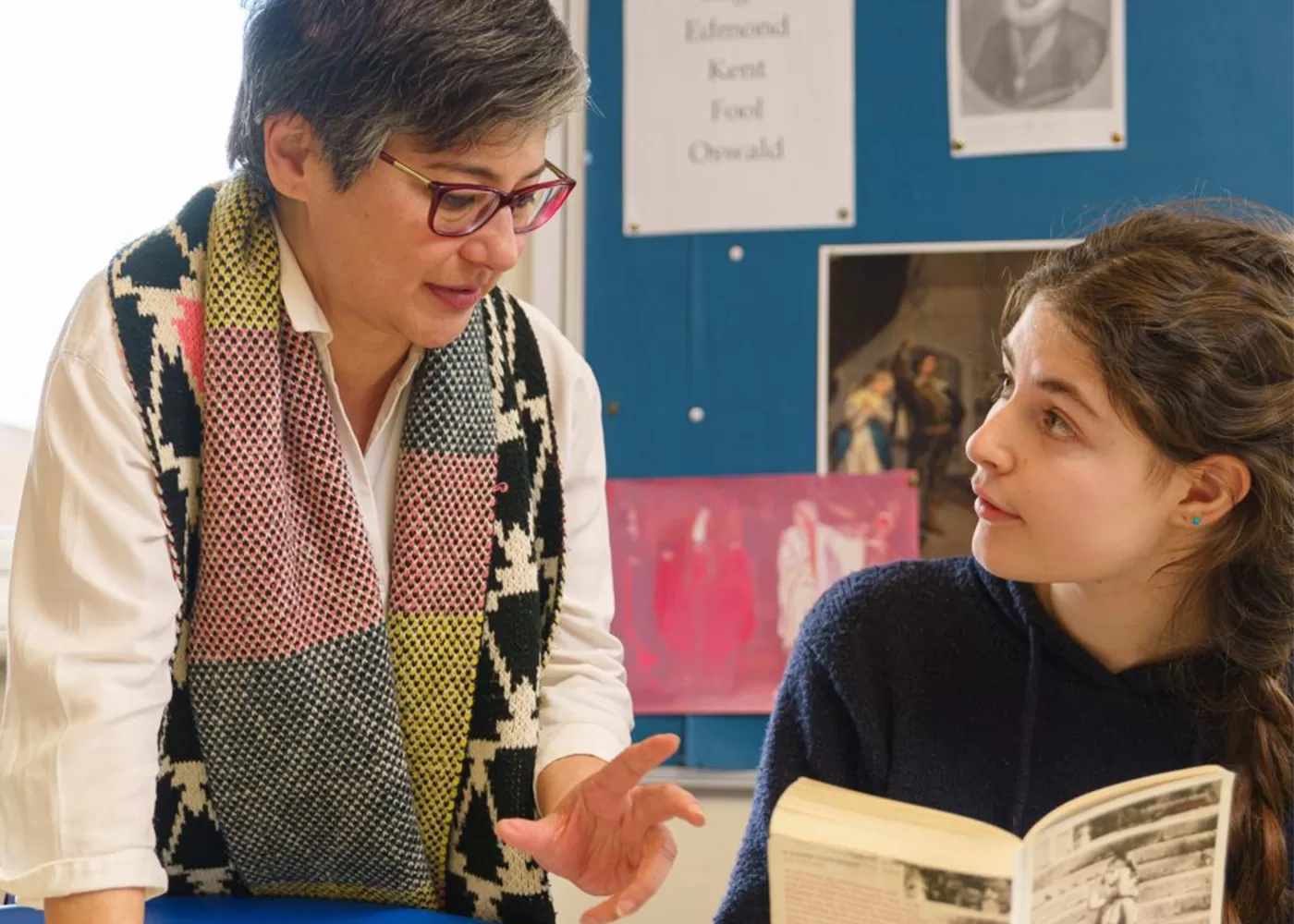
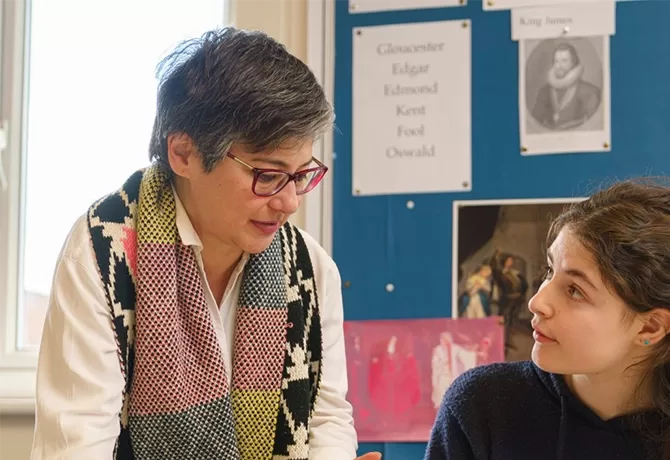
Number of pupils: 206
2024 A-level results: 54% A*/A
Academic entry criteria: no strict entry requirements, but in general, they would like to see students achieving an average grade of 6 at GCSE or equivalent. For certain A-level subjects such as maths, students will require higher GCSE grades.
Admissions process: rolling admissions, with no set deadline for applications. Prospective pupils are invited to the college for a visit and a meeting with the head teacher for an interview and to discuss their options and goals. Places are then offered accordingly.
bramptoncollege.com
DLD, Westminster
About 65% of DLD’s students are boarders, making it a great option for international students – especially as the on-site, riverside accommodation looks over the Houses of Parliament. It’s one of a handful of London colleges that also offers GCSEs and BTECs alongside A-levels, with an average class size of 12–16 students. It also offers a huge range of extracurricular clubs, with everything from netball and debating to law and medicine available.


Number of pupils: 171
2024 A-level results: 27% A*/A
Academic entry criteria: applicants need a minimum of five grade 4s at GCSE, with a grade 7+ in maths if studying it at A-level.
Admissions process: the school recommends registering as early as possible but operates no strict deadline. All candidates are interviewed, and DLD will seek references from their current school. Places are then offered accordingly.
dldcollege.co.uk
Westminster Tutors, South Kensington
Originally founded to help women get into Oxbridge, Westminster Tutors now offers its personalised educational programmes to all young learners. It specialises in one-to-one teaching, with students receiving three hours of lessons per subject per week as part of a timetable tailored to their individual needs. That’s not to say it’s an unsociable place to study; the college encourages interaction through group discussions and regular social activities. Students are also assigned a mentor, whom they meet with weekly to build study skills and on a general pastoral basis.


Number of Pupils: 45
2024 A-level results: 43% A*/A
Academic entry criteria: five grade 5s at GCSEs, and grade 6s in desired A-level subjects.
Admissions process: the school is non-selective, but students must show aptitude for and commitment to their chosen A-level subjects. To assess students’ suitability, they’ll be asked to complete a pre-enrolment questionnaire and interview with the head teacher.

















